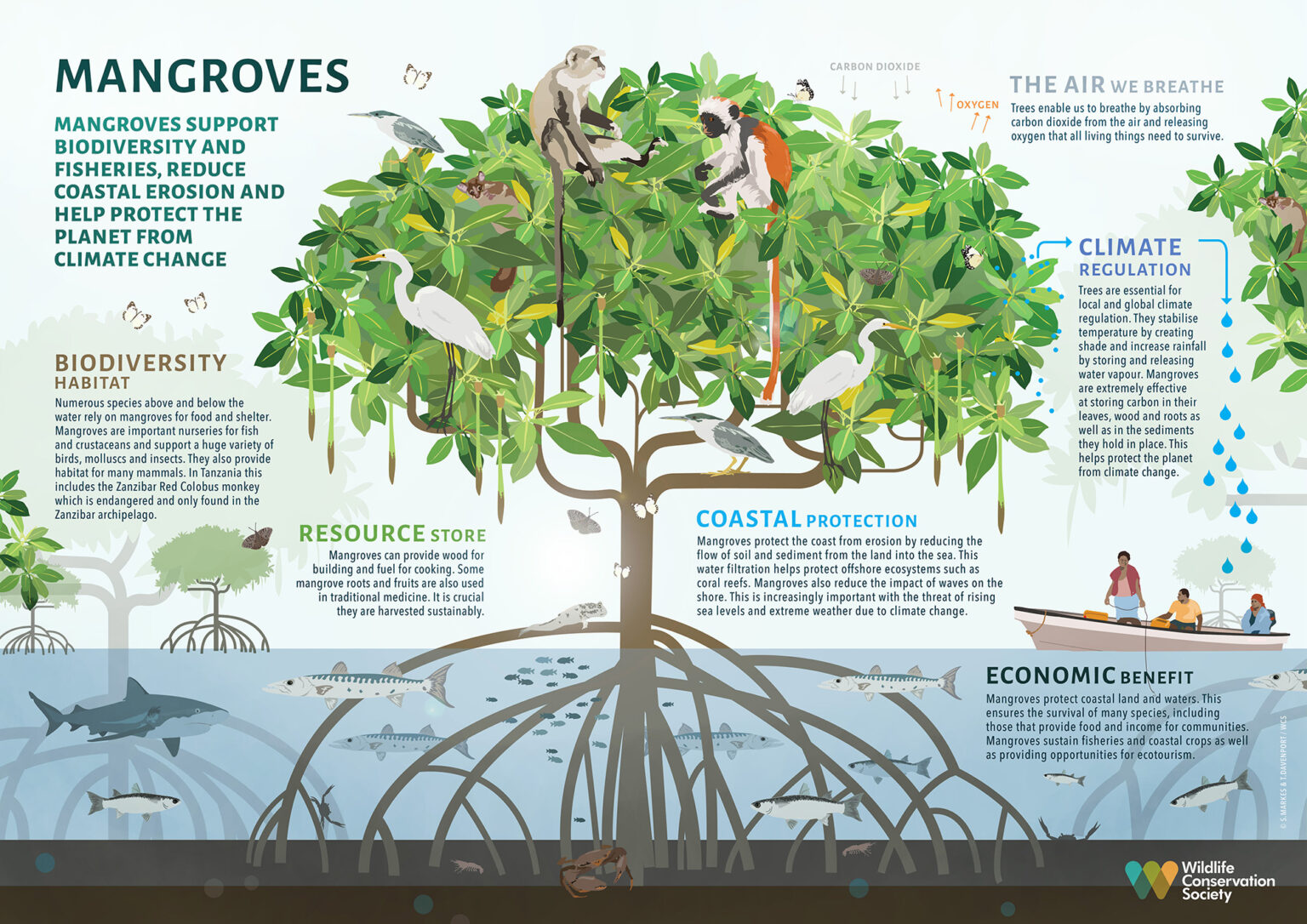- The Aga Khan Foundation has launched a campaign to plant 1.5 million mangrove trees in Bagamoyo, Tanzania.
- The environment in Bagamoyo is worsening due to illegal tree harvesting that has already cleared over 5,636 hectares of mangrove forest.
- The campaign is part of the AKF’s trailblazing programmes in East Africa geared towards providing an environmentally sustainable future.
The Aga Khan Foundation (AKF) is stepping up efforts to tackle negative impacts of climate change on the environment by planting 1.5 million mangrove trees along Africa’s Indian Ocean Coast. The green initiative is part of a network of projects in the pipeline under AKF’s long-term goal of creating a sustainable future for humanity globally.
The mangrove trees initiative, which is in response to climate change, was launched this May, in Bagamoyo, Tanzania. The campaign will be undertaken in Bagamoyo mangrove forest reserve, an ecosystem that borders the Saadani National Park.
Putting at risk environmental ecosystems
At the moment, this region is largely affected by illegal tree harvesting that has already put to waste over 5,636 hectares of mangrove forest, putting at risk environmental ecosystems that thrive along the reserve.
Read also: Aga Khan to set up infectious disease units in Tanzania
By working in collaboration with the government through the Tanzania Forestry Agency (TFS), and engaging the private sector, the AKF also plans to launch a micro forest project targeting about 50 schools across the country.
“Our institution is more focused on poverty alleviation and climate change mitigation due to its negative economic effects,” AKF Tanzania project coordinator, Mr Japhet Wangwe, told The Citizen.
Mangroves trees play a vital role in the conservation of marine ecology. They also one of the most effective and economic tools of offsetting carbon emissions. In this recognition, the AKF, which prioritizes sustainable environmental stewardship, is taking the restoration of mangrove forests in Tanzania as a collective responsibility.
However, the undertaking to restore mangrove forests in Bagamoyo is just a part of the organization’s grand initiatives focused on environment care.
AKF’s sustainable environment cause
The organization has implemented numerous water management measures in remote and resource-poor areas, and has carried out reforestation campaigns that have led to the planting of over 100 million trees thus far.
For example, they have created innovative responses to water, fodder and fuel shortages, and land degradation. They’ve also helped communities explore drip irrigation, biogas projects, community hydroelectric plants, windmills, and solar energy.
Read also: Aga Khan Foundation plugs gaps boosting Africa’s education
AKF has also helped build community assets that tackle climate change challenges over the longer term, such as planting trees and developing more efficient smoke-free stoves, amongst other low-cost habitat improvements.
.When it comes to community involvement, the AKF believes that development is sustainable only if the beneficiaries gradually become masters of the process, too.
AKF to drive sustainability agenda
In this regard, the foundation focuses on education, skills training, health and public services. Further they are involved in the conservation of cultural heritage, infrastructure development, urban planning and rehabilitation projects. What’s more, rural development, as well as policy and legislative development are among the aspects that the AKF takes into account to drive sustainability agenda.
To achieve its goals, AKF works closely with communities, mainly in rural areas. The network helps communities to prepare for and respond to natural disasters and the effects of climate change. For instance, their initiatives provide safe housing design and earthquake-resistant construction. Further, they support in village planning and systems to mitigate against natural hazards. Water supply and sanitation, and improved indoor living conditions are also other key focus areas.
The Aga Khan Development Network (AKDN) also has massive programmes on green energy development. For example, in Uganda, the Bujagali hydroelectric power project, funded by the AKDN, produces a third of the country’s electricity. They have also helped communities explore alternative sources of energy such as biogas, windmills, and solar.
Further, the AKDN has taken significant steps in fighting climate change through afforestation in Kenya. Kenya is currently rolling out plans to increase forest cover to 28 percent from the current eight percent.
AKDN’s commitment to going green
The AKDN is already running tree planting initiatives in schools around Lake Victoria basin, in Kenya. The plan is part of efforts by Kisumu County government to increase forest cover in the area.
AKDN agencies have already identified five schools for the partnership and handed over 500 fruit and indigenous seedlings for planting. This initiative is also part of AKDN’s broader commitment to go green in all its operations. In these undertakings, the AKDN partners with like-minded stakeholders to drive sustainability agenda.
Also in Kenya, the AKDN, working closely with Lions Clubs International, started a tree restoration project over a decade ago. In June 2012, only one year after the United Nations declared 2011 the International Year of Forests, the AKDN committed to planting 1.5 million trees in Kenya.
The Aga Khan Foundation (AKF) is a private, not-for-profit, non-denominational global development agency set up in 1967 by His Highness the Aga Khan. It brings together human, financial, and technical resources to help tackle some of the challenges facing the poorest populations around the world.
